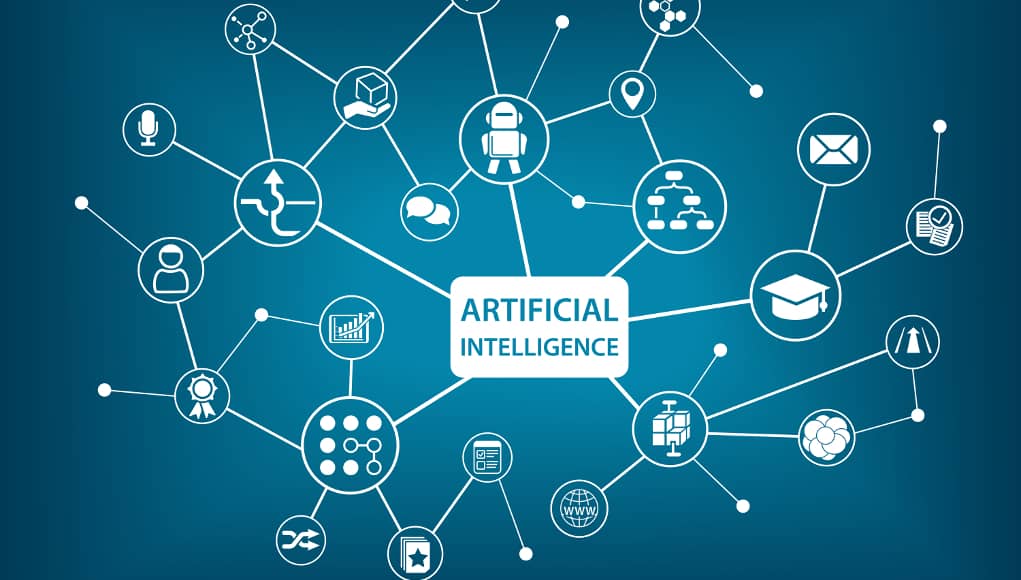For years, science fiction writers, futurists, and casual commentators have envisioned a future in which humans are living their best lives with the aid of artificial intelligence. (Or being tormented or enslaved. But that’s another story.) Still, most of these imaginings revolve around the idea of androids doing the tasks that humans don’t want to do. Artificial intelligence, or AI for short, has a much more vital role, especially for business needs: It’s able to streamline, automate, and enhance data processing, then make eerily accurate predictions. This capacity positions AI as a champion for enterprise, rather than a bot fulfilling a janitorial role.

Is AI Worth the Cost?
Companies are dipping their toes into the water with AI to see what kind of ROI they might expect. In truth, many companies aren’t yet seeing big returns. That’s partly because it’s currently expensive to scale up AI to the point of truly automating the business. However, business AI is still an emerging field with enormous potential. Even small businesses can benefit from implementing AI to the maximum level that they can.
Most businesses using AI are using machine-learning and automation systems to help cut down on the red tape that has plagued productivity for decades. Many tasks are easily handled by computers now. Despite concerns that AI is “taking jobs,” most companies that implement AI are finding that automation simply shifts mundane tasks away from the humans who can now devote their resources to things only humans can do.

What are businesses doing with AI?
With AI, companies can now get many of their messages handled and leads nurtured without causing unnecessary strain on their human agents. There is a large market for automated assistants, chatbots, and AI-powered marketing software that communicate with customers and nurture leads — with data-backed accuracy and timing. By leveraging the power of machine learning, these programs can approach conversational fluency with customers, all while collecting and analyzing data. That data then provides guidance for the optimal timing, messaging, and recommendations for that customer. AI is increasingly taking the guesswork out of sales and customer support.
AI is also good at analyzing that data and building personalized, efficient campaigns. Businesses can now have AI generate ad copy, determine the ideal audience and timing, and interpret all the results to help guide their advertising strategy. Because computers can process and understand exponentially more data points than a human analyst in a fraction of the time, they can take on that burden. Marketers can then focus on the creative functions that drive the strategy home.
Although it may sound like AI systems are primarily occupying the cloud, don’t worry: there are plenty of robots taking over the physical realm. This development is especially true in factories, where Artificial Intelligence is taking a primary role in supply chain management. Driverless vehicles are collecting and processing inventory, while drones are delivering packages. And cloud-based Artificial Intelligence plays a role here too, by better predicting consumer demand, processing times, and other factors. With AI, getting products from factories to customers is becoming a shorter, more accurate process.
READ: How A Business Can Benefit From Artificial Intelligence
What’s next for business AI?
As all these technologies become more affordable — and therefore more scalable — businesses will likely find themselves adopting Artificial Intelligence in every aspect of their enterprise. One emerging use case is in human relations and recruiting. As many people in this field have noticed, it’s not easy to select the best candidate for the job. As the candidate pool widens and more interviews are done remotely, determining the right fit is increasingly a challenge. AI can help by processing candidate data during pre-selection, then analyzing biometric and psychometric data during interviews to assess confidence and even detect potential lies.
AI will likely also assume a greater role in customer service and support. Although current chatbots are limited in what questions they can answer, future chatbots will continue to improve their conversational skills and be better able to interpret customers’ input. They’re also getting better at assessing consumer sentiment and selecting the appropriate response to convert leads and retain customers.
Should you use AI?
Even small businesses can benefit from using Artificial Intelligence. At this time, it’s affordable and efficient to set up chatbots on your site or use automation software to streamline your workflow. It’s worth it to assess potential future use cases of AI for your business. Take the necessary steps now to get ready for AI to take over — in a good way.
